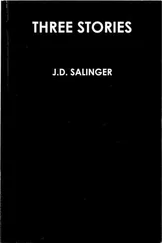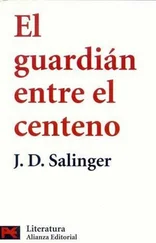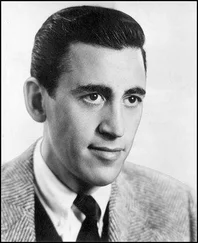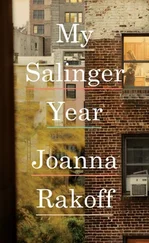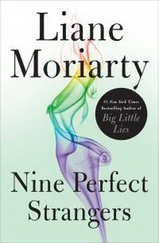J. Salinger - Nine Stories
Здесь есть возможность читать онлайн «J. Salinger - Nine Stories» весь текст электронной книги совершенно бесплатно (целиком полную версию без сокращений). В некоторых случаях можно слушать аудио, скачать через торрент в формате fb2 и присутствует краткое содержание. Жанр: Старинная литература, на английском языке. Описание произведения, (предисловие) а так же отзывы посетителей доступны на портале библиотеки ЛибКат.
- Название:Nine Stories
- Автор:
- Жанр:
- Год:неизвестен
- ISBN:нет данных
- Рейтинг книги:3 / 5. Голосов: 2
-
Избранное:Добавить в избранное
- Отзывы:
-
Ваша оценка:
- 60
- 1
- 2
- 3
- 4
- 5
Nine Stories: краткое содержание, описание и аннотация
Предлагаем к чтению аннотацию, описание, краткое содержание или предисловие (зависит от того, что написал сам автор книги «Nine Stories»). Если вы не нашли необходимую информацию о книге — напишите в комментариях, мы постараемся отыскать её.
Nine Stories — читать онлайн бесплатно полную книгу (весь текст) целиком
Ниже представлен текст книги, разбитый по страницам. Система сохранения места последней прочитанной страницы, позволяет с удобством читать онлайн бесплатно книгу «Nine Stories», без необходимости каждый раз заново искать на чём Вы остановились. Поставьте закладку, и сможете в любой момент перейти на страницу, на которой закончили чтение.
Интервал:
Закладка:
"Lee? Were you asleep?"
"No, no."
"Listen, I just thought you'd want to know. Joanie just barged in."
"What?" said the gray-haired man, and bridged his left hand over his eyes, though the light was behind him.
"Yeah. She just barged in. About ten seconds after I spoke to you. I just thought I'd give you a ring while she's in the john. Listen, thanks a million, Lee. I mean it--you know what I mean. You weren't asleep, were ya?"
"No, no. I was just--No, no," the gray-haired man said, leaving his fingers bridged over his eyes. He cleared his throat.
"Yeah. What happened was, apparently Leona got stinking and then had a goddam crying jag, and Bob wanted Joanie to go out and grab a drink with them somewhere and iron the thing out. I don't know. You know. Very involved. Anyway, so she's home. What a rat race. Honest to God, I think it's this goddam New York. What I think maybe we'll do, if everything goes along all right, we'll get ourselves a little place in Connecticut maybe. Not too far out, necessarily, but far enough that we can lead a normal goddam life. I mean she's crazy about plants and all that stuff.
She'd probably go mad if she had her own goddam garden and stuff. Know what I mean? I mean--except you--who do we know in New York except a bunch of neurotics? It's bound to undermine even a normal person sooner or later. Know what I mean?"
The gray-haired man didn't give an answer. His eyes, behind the bridge of his hand, were closed. "Anyway, I'm gonna talk to her about it tonight. Or tomorrow, maybe. She's still a little under the weather. I mean she's a helluva good kid basically, and if we have a chance to straighten ourselves out a little bit, we'd be goddam stupid not to at least have a go at it. While I'm at it, I'm also gonna try to straighten out this lousy bedbug mess, too. I've been thinking. I was just wondering, Lee. You think if I went in and talked to Junior personally, I could--"
"Arthur, if you don't mind, I'd appreciate--"
"I mean I don't want you to think I just called you back or anything because I'm worried about my goddam job or anything. I'm not. I mean basically, for Chrissake, I couldn't care less. I just thought if I could straighten Junior out without beating my brains out, I'd be a goddam fool--"
"Listen, Arthur," the gray-haired man interrupted, taking his hand away from his face, "I have a helluva headache all of a sudden. I don't know where I got the bloody thing from. You mind if we cut this short?
I'll talk to you in the morning--all right?" He listened for another moment, then hung up.
Again the girl immediately spoke to him, but he didn't answer her. He picked a burning cigarette--the girl's--out of the ashtray and started to bring it to his mouth, but it slipped out of his fingers. The girl tried to help him retrieve it before anything was burned, but he told her to just sit still, for Chrissake, and she pulled back her hand.
------------------------------
De Daumier-Smith's Blue Period
------------------------------
IF IT MADE any real sense--and it doesn't even begin to--I think I might be inclined to dedicate this account, for whatever it's worth, especially if it's the least bit ribald in parts, to the memory of my late, ribald stepfather, Robert Agadganian, Jr. Bobby--as everyone, even I, called him--died in 1947, surely with a few regrets, but without a single gripe, of thrombosis. He was an adventurous, extremely magnetic, and generous man. (After having spent so many years laboriously begrudging him those picaresque adjectives, I feel it's a matter of life and death to get them in here.)
My mother and father were divorced during the winter of 1928, when I was eight, and mother married Bobby Agadganian late that spring. A year later, in the Wall Street Crash, Bobby lost everything he and mother had, with the exception, apparently, of a magic wand. In any case, practically overnight, Bobby turned himself from a dead stockbroker and incapacitated bon vivant into a live, if somewhat unqualified, agent-appraiser for a society of independent American art galleries and fine arts museums. A few weeks later, early in 1930, our rather mixed threesome moved from New York to Paris, the better for Bobby to ply his new trade. Being a cool, not to say an ice-cold, ten at the time, I took the big move, so far as I know, untraumatically. It was the move back to New York, nine years later, three months after my mother died, that threw me, and threw me terribly.
I remember a significant incident that occurred just a day or two after Bobby and I arrived in New York. I was standing up in a very crowded Lexington Avenue bus, holding on to the enamel pole near the driver's seat, buttocks to buttocks with the chap behind me. For a number of blocks the driver had repeatedly given those of us bunched up near the front door a curt order to "step to the rear of the vehicle."
Some of us had tried to oblige him. Some of us hadn't. At length, with a red light in his favor, the harassed man swung around in his seat and looked up at me, just behind him. At nineteen, I was a hatless type, with a flat, black, not particularly clean, Continental-type pompadour over a badly broken-out inch of forehead. He addressed me in a lowered, an almost prudent tone of voice. "All right, buddy," he said, "let's move that ass." It was the "buddy," I think, that did it. Without even bothering to bend over a little--that is, to keep the conversation at least as private, as de bon gout, as he'd kept it--I informed him, in French, that he was a rude, stupid, overbearing imbecile, and that he'd never know how much I detested him. Then, rather elated, I stepped to the rear of the vehicle.
Things got much worse. One afternoon, a week or so later, as I was coming out of the Ritz Hotel, where Bobby and I were indefinitely stopping, it seemed to me that all the seats from all the buses in New York had been unscrewed and taken out and set up in the street, where a monstrous game of Musical Chairs was in full swing. I think I might have been willing to join the game if I had been granted a special dispensation from the Church of Manhattan guaranteeing that all the other players would remain respectfully standing till I was seated. When it became clear that nothing of the kind was forthcoming, I took more direct action. I prayed for the city to be cleared of people, for the gift of being alone--a-l-o-n-e: which is the one New York prayer that rarely gets lost or delayed in channels, and in no time at all everything I touched turned to solid loneliness. Mornings and early afternoons, I attended--bodily--an art school on Forty-eighth and Lexington Avenue, which I loathed. (The week before Bobby and I had left Paris, I had won three first-prize awards at the National Junior Exhibition, held at the Freiburg Galleries. Throughout the voyage to America, I used our stateroom mirror to note my uncanny physical resemblance to El Greco.) Three late afternoons a week I spent in a dentist's chair, where, within a period of a few months, I had eight teeth extracted, three of them front ones. The other two afternoons I usually spent wandering through art galleries, mostly on Fifty-seventh Street, where I did all but hiss at the American entries. Evenings, I generally read. I bought a complete set of the Harvard Classics--chiefly because Bobby said we didn't have room for them in our suite--and rather perversely read all fifty volumes. Nights, I almost invariably set up my easel between the twin beds in the room I shared with Bobby, and painted. In one month alone, according to my diary for 1939, I completed eighteen oil paintings. Noteworthily enough, seventeen of them were self-portraits. Sometimes, however, possibly when my Muse was being capricious, I set aside my paints and drew cartoons. One of them I still have. It shows a cavernous view of the mouth of a man being attended by his dentist. The man's tongue is a simple, U.S. Treasury hundred dollar bill, and the dentist is saying, sadly, in French, "I think we can save the molar, but I'm afraid that tongue will have to come out." It was an enormous favorite of mine.
Читать дальшеИнтервал:
Закладка:
Похожие книги на «Nine Stories»
Представляем Вашему вниманию похожие книги на «Nine Stories» списком для выбора. Мы отобрали схожую по названию и смыслу литературу в надежде предоставить читателям больше вариантов отыскать новые, интересные, ещё непрочитанные произведения.
Обсуждение, отзывы о книге «Nine Stories» и просто собственные мнения читателей. Оставьте ваши комментарии, напишите, что Вы думаете о произведении, его смысле или главных героях. Укажите что конкретно понравилось, а что нет, и почему Вы так считаете.


